


KANDUNGAN |
Chapter 01 - Introduction to Organic Vegetables
Bab 01 - Pengenalan kepada Sayur-sayuran Organik
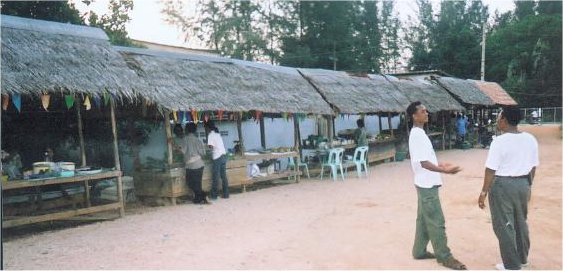 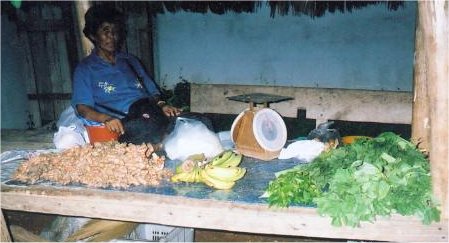 A Thursday's organic green market in Hatyai Pasar hijau organik setiap Khamis di Hatyai |
http://www.earthboundfarm.com/kids_whatsorganic.html
Growing food is not easy. All farmers, all over the world, have to solve some big problems to make sure their plants can thrive and grow. They have to make sure the soil has enough nutrients to "feed" little plants so they will grow to be big and healthy and good to eat. They have to control bugs and other pests that can attack and eat the plants. And they have to control weeds that can "choke" young plants by taking up the space, sunlight and nutrients they need to grow. Most farmers in this country are what we call "conventional farmers." They rely on synthetic chemcials and fertilizers to grow their crops. These farming chemicals and fertlizers are not found in nature, and they often build up in the environment, polluting our water and soil. Most of these chemicals remain active for a long time. . . . . . long after their job is done. Although these chemicals can solve many farming problems, some of them are not healthy for the environment or for people. |
|
http://www.earthboundfarm.com/kids_whatsorganic.html
As organic farmers, we grow food differently from conventional farmers because we choose to use nature's ways of solving farming problems. We grow plants without herbicides (weed killers) or fumigants (soil sterilizers). All of our fertilizer (plant food) is natural. Sometimes we do use some insecticides (insect killers) or fungicides (fungus killers), but only special ones that are approved for organic farming. And we use them less often than conventional farmers use chemicals on their crops. Substances approved for organic farming are usually made from natural ingredients and are less harmful to people, animals, and the environment. It takes a little more effort to grow food organically, but it is a good way to grow healthy, strong plants. To enrich the soil, organic farmers plant cover crops, such as bell beans and hairy vetch, that make the soil richer as they grow and when they are tilled under. We also use compost, a natural form of fertilizer that comes from different materials that have rotted away and broken down. We keep pests and diseases away by crop rotation, which means switching the location of plants each season. We also use natural insect repellents, and bring in good bugs that like to eat bad bugs. We do most of our weeding with tractors and also by hand with tools like hoes. Even though it takes a little more work, we think farming organically is the healthiest choice. Organic farming helps keep our air, soil, water and food supply clean. We also provide our farm workers and neighbors with a healthier environment. Organic farming helps make healthy food and a healthy planet! |
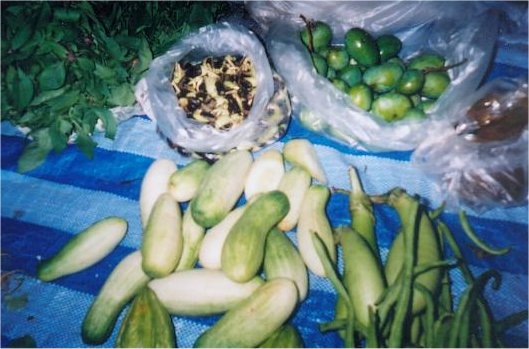 Close-up of organic vegetables at the green market. Gambar dekat sayuran organik di pasar hijau. 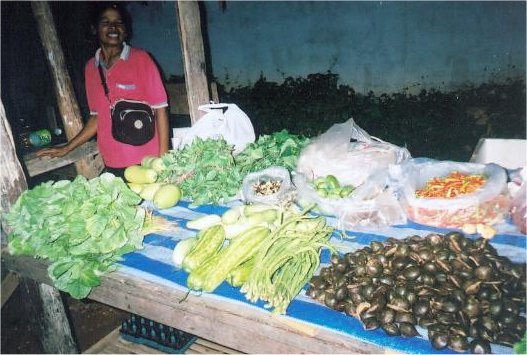 A stall with assorted local self grown organic vegetables. Gerai sayuran organaic dari hasil tanaman persendirian. |
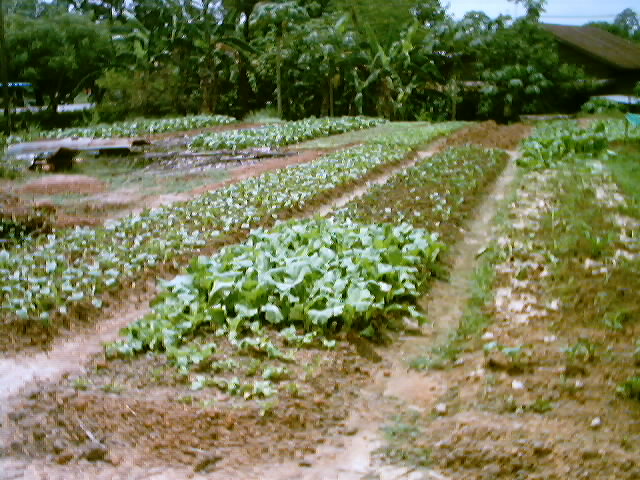
This page was specially designed to collect information on Organic Vegetables. More pictures and text will be added from time to time as I gather more information on this topic.
 (Pertanyaan)
(Pertanyaan)